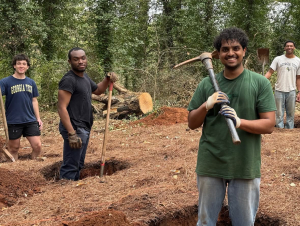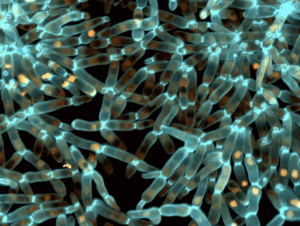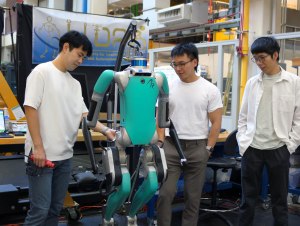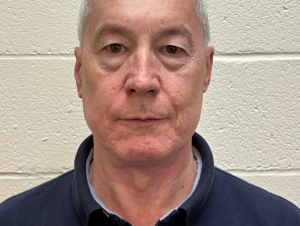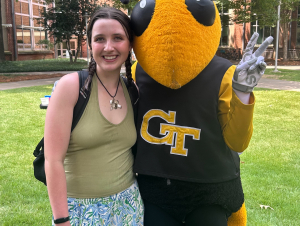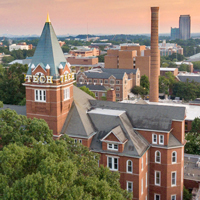Latest News
Fighting poverty and fostering kindness, the student-led Yellow Jackets Against Poverty Club makes a hands-on difference in the lives of those in need.
The grant will enable research into the origin of complex life.
To achieve better training outcomes with faster deployment results, Fukang Liu and Feiyang Wu, graduate students under Professor Ye Zhao from the Woodruff School of Mechanical Engineering and faculty member of the Institute for Robotics and Intelligent Machines, have published a duo of papers in IEEE Robotics and Automation Letters. This is a collaborative work with three other IRIM affiliated faculties, Profs. Danfei Xu, Yue Chen, and Sehoon Ha, as well as Prof. Anqi Wu from School of Computational Science and Engineering.
Professor Andrzej Święch is one of only 40 mathematical scientists recognized this year for outstanding contributions to the creation, exposition, advancement, communication, and utilization of mathematics.
Angela Juric’s childhood changed after her father's workplace accident. Through resilience and a Kids’ Chance scholarship, she's now a third-year biology major pursuing a career in healthcare.
Faculty at Georgia Tech use their expertise in engineering, math, and computer science to apply common principles of these disciplines to neuroscience research. Within the Institute for Neuroscience, Neurotechnology, and Society (INNS),neuroscientists use these quantitative methods to understand how humans think, treat disorders such as Parkinson’s and Alzheimer’s, and better understand psychiatric disorders.


